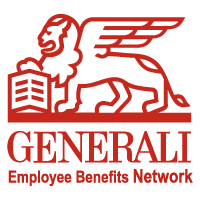A holistic approach to workplace mental health support
Better supporting the mental health of younger employees - or any age, for that matter - is a sometimes about building resilience.
This often gets translated into resilience training. Only focusing here, however, risks simplifying the matter.
And this can lead to ill-effective solutions.
A complete approach
Here, we focus on the value of taking a ‘whole person’ approach to mental health support in the workplace.
What has this got to do with us as a group income protection provider? Well, we employ and partner with experts in vocational rehabilitation.
These experts support and treat employees referred to us because their absence, through illness or injury, looks like it may become long term.
Vocational rehabilitation is about considering the whole person.
We examine the primary, presenting problem when an employee is referred to us – let’s say that’s a mental health issue. We also consider the physical and social (environmental) aspects. This is known as a biopsychosocial approach.
The whole recovery journey
Ensuring the right support and a sustainable return to work, wherever appropriate, depends on this multifaceted approach.
This means considering work as an important part of the recovery journey. In other words, work and the its environment is as important to good health, as targeted benefits and interventions.
So, why consider applying ‘whole person’ thinking not only to absence, but to everyday working life as well?
The global corporate wellness industry was worth $53 billion (£41 billion) last year. Compare that to the $8 billion (£6 billion) just eight years ago, in 2016, according to reports.
Focus on a clearer picture
At the same time, levels of stress, anxiety and burnout – collectively ‘mental health’ – do not seem to be improving for Generation Z (those under 26-year olds).
That said, data can only tell us so much. When it comes to mental health, data alone presents a somewhat fuzzy picture.
This is because mental health has arguably become a catch-all term for everything; from the non-medical to the medical.
This is likely due to a combination of factors, including destigmatisation of mental health – a good thing. It has also meant that anything psychological is deemed a mental health issue.
Alongside this, is the generic way in which absence is reported.
In other words, anything psychological, from non-clinical stress to clinical depression, gets put in the mental health bracket.
A new way of thinking
So, while it’s important to not be alarmist when faced with the global data, there clearly is a problem. A new way of thinking is needed.
At the heart of that new thinking is, in our view, the need to apply the ‘whole person’ approach to everyday mental health support. This could also be called prevention, or even inclusion or resilience. The label matters little. It’s the end goal – positive mental health – that we’re concerned about.
Reward, benefits and interventions represent an important part of that picture, but not the whole picture
For example, this article heading brings together workplace inclusion, mental health, resilience and younger employees. It’s becoming increasingly understood that the intersection between these four things is a complex place.
Reward and benefits professionals cannot influence everything. Cross-functional collaboration, however, is key; to understand – and help maximise – the inputs needed to ensure mental wellbeing becomes a realistic output.
Three-tiered approach
Benefits and interventions represent important inputs.
Their effectiveness largely depends on other important inputs. These are the social or environmental things that lay the foundation for everything else; namely culture and management practices.
As outlined by the National Institute for Health and Care Excellence (NICE), creating the conditions for positive mental wellbeing, necessitates a three-tiered approach.
And the foundational tier is culture and management practices.
This, first and foremost, to ensure that benefits and interventions stand the best chance of adding effective support to individuals – and, hence, value to organisations – where needed.
Applying ‘whole person’ thinking: 3 top tips for reward and benefits professionals
1. Raise awareness of NICE guidelines
Almost 3 in 10 line managers are unaware of the NICE mental health guidelines; the three-tiered approach mentioned earlier. These guidelines were introduced to help evolve thinking on workplace mental health support, making it clear that the organisation has a foundational role to play. Consider working with learning and development colleagues, to look at building this into line manager training, where necessary.
2. Consider the environmental influences on stress levels
It’s not all about building resilience, it might also be about looking at the wider pressures, as outlined by the Health & Safety Executive (HSE), says Karen Royle, a chartered occupational psychologist and managing director and owner of Ways to Work. She adds: “For example, physical pressures, such as noise-levels where people are trying to do focused work. Also, expectations on deadlines – why are they there, are they appropriate and is there any flex. And do people feel connected to the wider business – understand whether they feel able to contribute ideas and support business developments and new initiatives.”
3. Introduce wellbeing action plans
Creating the foundations is very much about active listening; ensuring individuals feel heard. Consider using wellbeing action plans here. While primarily a tool to support the employee, they can also give a lot of confidence to the line manager, with simple things such as the language they’re using. Often line managers are afraid to have conversations on mental health because they’re afraid of saying the wrong thing.
Disclaimer: All information contained herein represents the views and opinions of the author as at the date of writing and is provided for general information only. Nothing herein constitutes or is intended to constitute financial or other form of advice and no individual should rely upon the information provided in making a specific investment decision without first seeking independent professional advice.
Supplied by REBA Associate Member, Generali Employee Benefits Network
Generali Employee Benefits' solutions are to protect and enhance the wellbeing of their workforce.








